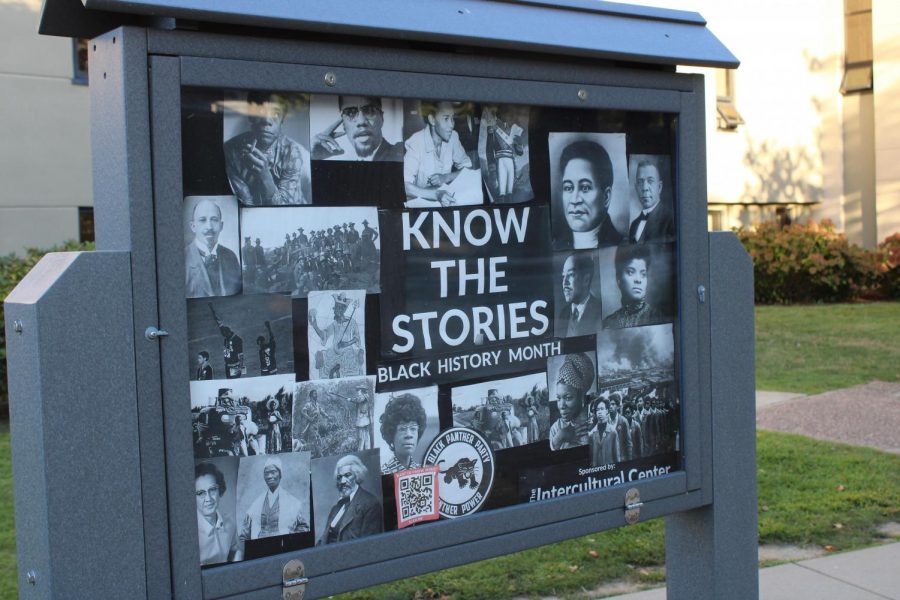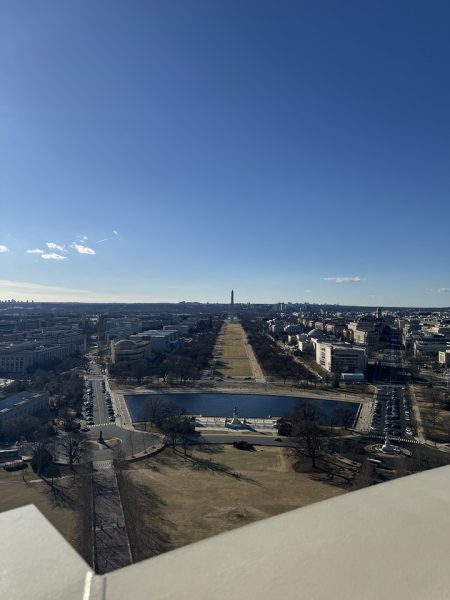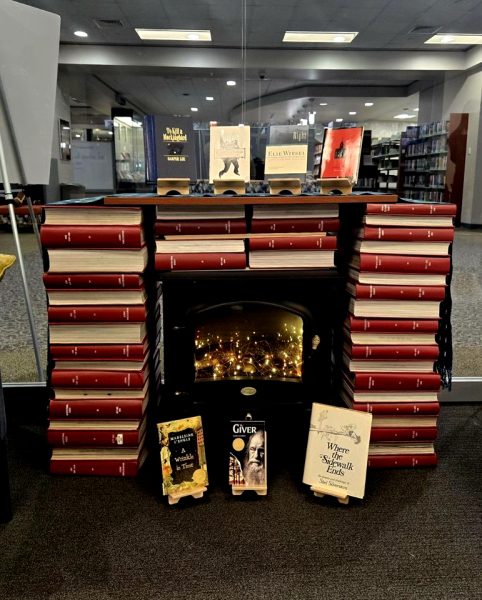Intercultural Center’s Black History Month event series aims to leave a mark on campus
Emily Dvareckas / The Hawks’ Herald
The Intercultural Center has events lined up for the month of February to celebrate Black History Month.
February may be the shortest month of the year but it holds great importance. Feb. 1 marks the beginning of Black History Month and with that, the beginning of a month-long event series presented by Roger Williams University’s Intercultural Center.
The event series begins on Feb. 1 with the “Know the Name” poster series followed by Black Excellence Photo Shoots from Feb. 4 to Feb. 5. Black Excellence Week lasts from Feb. 8 to Feb. 12 with events occurring each night. The rest of the month consists of events such as the Black Power book club, allyship seminar, a movie night and more. A full list of events can be found on the Intercultural Center’s Instagram, @rwu_interculturalcenter.
For students who may only be able to attend one or two events, Graduate Assistant David Hayes recommended the student-led TED Talks occurring on Feb. 11.
“This idea originated from a student and we’re so excited to be able to materialize their idea,” Hayes said. “We want the campus community to hear from members of the student body on issues of great importance regarding social justice advocacy.”
Another event Hayes recommended is the Dialogue on Diversity. The event explores the work of Dr. Martin Luther King Jr. in his fight for economic justice, a story not often shared.
Hayes welcomed students to tune in for the two movie nights: one on Feb. 12 with a showing of “I Am Not Your Negro” and one on Feb. 26 with a showing of “Black Power Mixtape.” Both events will be held at 6:30 p.m.
“‘I Am Not Your Negro” is a great documentary about James Baldwin’s relationship to civil rights leaders Malcolm X, Martin Luther King Jr. and Medgar Evers. The latter we seldom hear about, but he is nonetheless important in the conversation about civil rights. It explores themes like the Black identity in America and the conditions and experiences that Black Americans continuously face,” Hayes said. “We are also showing “Black Power Mixtape,” which more in-depth explores the Black experience in the U.S. during the later civil rights era of the late 1960s and 1970s with the emergence of the Black Power movement.”
Hayes is excited about the event series and hopes to create a campus community that is more informed on Black history and culture. He hopes students are inspired to create changes in their own communities and plan events and programs for what they are passionate about.
“It’s important to educate the students of campus on Black history and culture and show them there truly is far more to Black history, not only in the States but across the Black diaspora,” Hayes said. “A better understanding of history will result in a more informed public which creates better social spaces in general, helps build allies and ultimately works to reform the white power structure that has belittled Black history for so long.”
Director of Institutional Diversity, Equity and Inclusion Zoila Quezada is also excited for the event series. She shared her thoughts on why the series is so important.
“The question should be why wouldn’t we celebrate it! Black History is United States History,” Quezada said. “African American, Black and Black Indigenous folks have been left out of many history chapters and it is our role to commemorate, honor and celebrate this history while also celebrating and uplifting our current community while providing spaces that celebrate Black excellence with students, alumni, staff and faculty.”
Quezada hopes the legacy of the event series is able to live on and produce similar series on campus and that more students will participate in the events and help create new programs. She also hopes more faculty, staff and student leaders will use their positions to get the word out about events and encourage students to join.
For students unfamiliar with the Intercultural Center, Quezada said “it provides support, it provides a space, it provides a family away from home, it provides inspiration, it provides life — have you been in the IC? It is always a party. We love it here.”
The Intercultural Center is currently supporting students in person and remotely. Students can contact Quezada at [email protected].
Emily Dvareckas graduated from RWU in 2022 with a degree in forensic science. She spent three years with The Hawks’ Herald as the photo editor...






